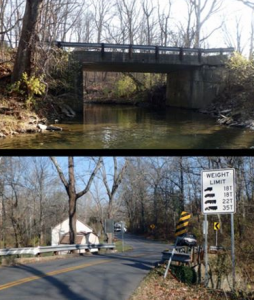The U.S. Senate passed the Infrastructure Investment and Jobs Act on a broad bipartisan vote of 69-30 Tuesday. It moves to the House of Representatives for approval.
This historic bill includes many of President Joe Biden’s economic priorities, including record investments in minority-owned businesses, broadband infrastructure, expanded funding to track and address climate change, while also including the largest-ever federal investments in roads and bridges, clean drinking water and more.
After the Senate passed the Infrastructure Investment and Jobs Act, U.S. Secretary of Commerce Gina M. Raimondo released the following statement:

“I am deeply thankful for the unwavering commitment of the Republican and Democratic Senators who led the process to get this done. Throughout the entire process, President Biden showed incredible leadership keeping these talks together and encouraging all of us to remain committed to this bipartisan approach. Passing a bipartisan infrastructure bill sends a message to nations around the world about the strength of our democracy and what we can accomplish together for the benefit of all Americans. The investments in this bill will better position the United States to compete globally, strengthen our supply chains, and create millions of good-paying jobs – all while making our economy more resilient and just.
“The Infrastructure Investment and Jobs Act represents a historic investment in our country that will strengthen our economy to benefit all Americans for decades to come. This is a generational achievement that both parties can be proud of, and there is still more to do as we carry out President Biden’s Build Back Better agenda. Broad support exists to make needed investments in the Care Economy to provide access to affordable, quality care services as well as reinvigorating workforce training to ensure our workers are prepared for the jobs of the 21st century. I look forward to continued engagement with Congress to make progress on these critical challenges.”
Among the historic investments included in the bill is more than $48 billion in funding for the National Telecommunications and Information Administration (NTIA) to fund state and local investments to help reach 100% access to affordable, high-speed broadband service. This is among the most significant government investment in broadband access and infrastructure in American history, and is a critical component of President Biden’s Build Back Better agenda.

The bill will also make permanent the Minority Business Development Agency (MBDA), enhancing its ability to promote and administer its flagship programs to promote the growth, development, and resiliency of minority-owned businesses. As the only federal agency dedicated solely to economic development for minority businesses, the move to permanently authorize MBDA is essential to ensuring the economic recovery reaches all of America’s communities.
The legislation makes major investments to tackle climate change, increase infrastructure resiliency, and restore and improve coastal habitats by providing the National Oceanic and Atmospheric Administration (NOAA) with approximately $3 billion in funding for climate science and services.
U.S. Senator Mitch McConnell (R-KY) praised Senate passage of the bill will have a major impact on Kentucky.
“I was proud to support the historic bipartisan infrastructure deal and prove that both sides of the political aisle can still come together around commonsense solutions. By promoting sensible, collaborative legislation, we have shown that the Senate still works as an institution. This is an important achievement for Kentucky and the American people,” said Senator McConnell.

“Communities all across the Commonwealth will benefit from this bill, which will provide critical federal resources to assist the state in updating our highways, bridges, airports, broadband, and clean drinking water. Through today’s actions, we will be more competitive on the global stage and primed for broad-based economic growth.”
The bipartisan legislation includes the following infrastructure priorities for Kentucky:
• Designates the Louie B. Nunn Cumberland Expressway as an I-65 interstate spur. By designating the expressway as a spur of I-65, the expressway would be eligible for federal assistance. The designation maintains the existing weight limit to continue the use of agriculture vehicles on the roadway. Senator McConnell and Congressmen Hal Rogers and James Comer have long advocated for this designation. Opening the Cumberland Expressway to federal resources can boost investment and economic development opportunities across this region.
• Provides critical funding to states for roads, highways and bridges. Kentucky would receive $4.6 billion over 5 years for its infrastructure needs. The historic investment in Kentucky’s roads, highways and bridges will provide the state with certainty to plan road projects. In addition to this funding, Kentucky would also receive $438 million in direct bridge funding for state to further invest in the rehabilitation, repair and replacement of bridges.

• Includes several competitive grant programs that states may apply for to help fund major bridge and road projects, giving Kentucky the opportunity to address projects like the Brent Spence and I-69 bridges.
— $12.5 billion in competitive grants for bridge projects. For bridges of regional significance with total costs of greater than $100 million, grant awards would be at least $50 million.
— $5 billion for the brand new National Infrastructure Project Assistance grant program. Supports multi-modal, multi-jurisdictional projects, like the Brent Spence Corridor project.
— $7.5 billion for the RAISE (formerly BUILD) grant program. This competitive grant program funds surface transportation projects of local and regional significance.
— $3.2 billion for the Infrastructure for Rebuilding America (INFRA) grant program. These competitive funds support highway and rail projects that are deemed regionally and nationally significant.
• Helps Kentucky complete its Appalachian Development Highway System (ADHS) corridors. Kentucky will receive $69 million of the $1.25 billion dedicated to this program. The state could also apply for funding from a $2 billion new Rural Surface Transportation Grant Program that reserves at least 25% of funding for projects to complete the ADHS, which helps spur economic development in Appalachia.
• Provides $391 million for Kentucky’s public transportation priorities.

• $25 billion for airport infrastructure improvements. The majority of the funding will be distributed by a formula, so Kentucky airports are guaranteed to receive funding.
• $11.2 billion for Abandoned Mine Land Reclamation Fund. Kentucky ranks third among all states with abandoned mine land reclamation needs and would receive a portion of these funds.
• $1.5 billion for Brownfield Site Land Revitalization. Kentucky, which has over 8,000 brownfield sites, is eligible to apply for funds via a competitive federal grant program.
• $65 billion for broadband deployment and improvement – Kentucky will be eligible to receive a portion of this funding:
— Including funding from the $2 billion provided to the United States Department of Agriculture (USDA) for programs like the ReConnect Program, which provides loans and grants to fund the construction, acquisition or improvement of facilities and equipment that provide broadband service in rural areas. Kentucky communities and organizations are eligible for this funding through the competitive federal grant program.
— Kentucky also will receive at a minimum, $100 million for broadband deployment through a new grant program administered by United States Department of Commerce to expand broadband to unserved and underserved areas

• Authorizes $4.7 billion for Abandoned Oil and Gas Wells – Kentucky has the fourth most abandoned well sites in the United States, with more than 14,000 total in nearly every county. Kentucky is eligible to receive a portion of these funds through a competitive federal grant program.
• $1.6 billion for Dam Safety Removal through existing FEMA, NOAA, Army Corps, U.S. Forest Service, and U.S. Fish and Wildlife Services. Kentucky has benefitted from these programs in the past and they could provide benefit Lock and Dam #1 on the Barren River.
• Authorizes up to $418 million to Kentucky’s clean and drinking water programs. Over 5 years, Kentucky may receive up to:
— $235 million through the Drinking Water State Revolving Loan Fund.
— $182 million through the Clean Water State Revolving Loan Fund.
• $1 billion to Appalachian Regional Commission, which will benefit many counties in Eastern Kentucky.
• Kentucky will benefit from the $1 billion State and Local Cybersecurity Grant Program to increase investment in cybersecurity for critical infrastructure.
For more information on the bill, visit WhiteHouse.gov.


















